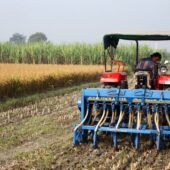Guest contributor Katarzyna Wilk reflects on the need for accelerating sustainable finance education to equip current and future professionals with the knowledge and practical skill needed

With a strong global sustainable finance trend, there is a growing need for equipping current and future professionals with the knowledge and practical skills necessary in the financial sector.
Some universities have already responded to this challenge by adding sustainable finance certification programs, or working on the research agenda. Prominent examples include Yale Initiative on Sustainable Finance, Columbia Sustainable Investing Research Initiative, Cambridge Centre for Sustainable Finance, and Harvard programs and research on impact measurement, as well as other initiatives in countries such as Sweden, the Netherlands, and Switzerland with the recent Building Bridges Initiative.
However, in general, education in this area remains insufficient both in terms of scope and coverage. How could sustainable finance education be accelerated?
Sustainable finance programs foremost need to reflect market needs and respond to an increasing demand for highly-skilled ESG/sustainable investment analysts, advisors and asset managers. Developing good quality programs, therefore, requires a collaborative effort of universities along with business and research institutions, as well as support from international organisations and local governmental agencies, responsible for sustainable finance and the sustainable development agenda.
The programs not only need to introduce students to a diversity of sustainable and impact investing strategies but also enable them to develop skills necessary to perform critical assessments. The focus needs to be on designing portfolios, funds and bonds meeting sustainability or impact criteria, the use of screening and assessment tools, as well as on ESG/sustainability investment reporting.
Furthermore, developing an ability to perform verifications of sustainable investment products, evaluate a credibility of ESG data, assess ESG risks and opportunities, and interpret these results in a broader multi-level, cross-national context, are important too. Understanding how UN SDGs defined at the global level can be operationalised and what are the limitations in applying them to investment products is essential too.
Practical orientation
Sustainable finance teaching methods require a practical orientation, with an emphasis on case studies and exercises, covering challenging areas such as ESG materiality analysis and data operationalisation, strategy implementation, and pre- and post-investment impact measurements. Thus, developing analytical skills and critical thinking is important, also given the relatively high green- and impact-washing risks present across markets.
Some focus on developing an ability to understand and apply related regulations is required, however, as they evolve quickly, this aspect does not need to be treated as a priority.
The role of finance and banking departments and business schools is undoubtedly vital in shaping the skills and attitudes of future financial market actors. Yet, sustainable finance education should not be limited to them – law, policy, economics, sociology, political sciences, international development, and environmental science departments need to cover some of the introductory aspects to ensure the complexity of sustainable finance domain will be reflected in the future diversified work of alumni.
Also, as a response to a growing interest in impact ventures, the role of startup accelerators is important. Adding sustainability as a selection criterion, as well as offering trainings, covering sustainability management, impact strategy design, ESG data collection and reporting, is crucial too.
Education is among the strongest drivers for accelerating the transition to sustainable finance. Good quality and practically-oriented programs and research are essential to make this trend long-lasting and resulting in tangible outcomes globally.
As such, sustainable finance education requires an on-going debate among academia, business and policy-makers, to ensure it reflects complexity of sustainable finance challenges and contributes to timely responses to socio-environmental problems. Importantly, universities need to review their programs on a regular basis and respond to dynamic developments in this area.

Dr Katarzyna Wilk is a lecturer, CEO of Swiss Impact Lead and president of Swiss Impact Lead Foundation, which support sustainable finance education and impact startups growth. She received a PhD in sociology from Yale, and Environment Policy and Sustainable Development Certificate from Harvard.





